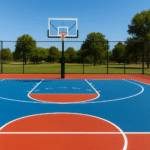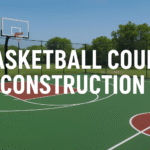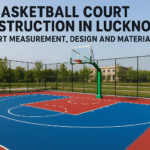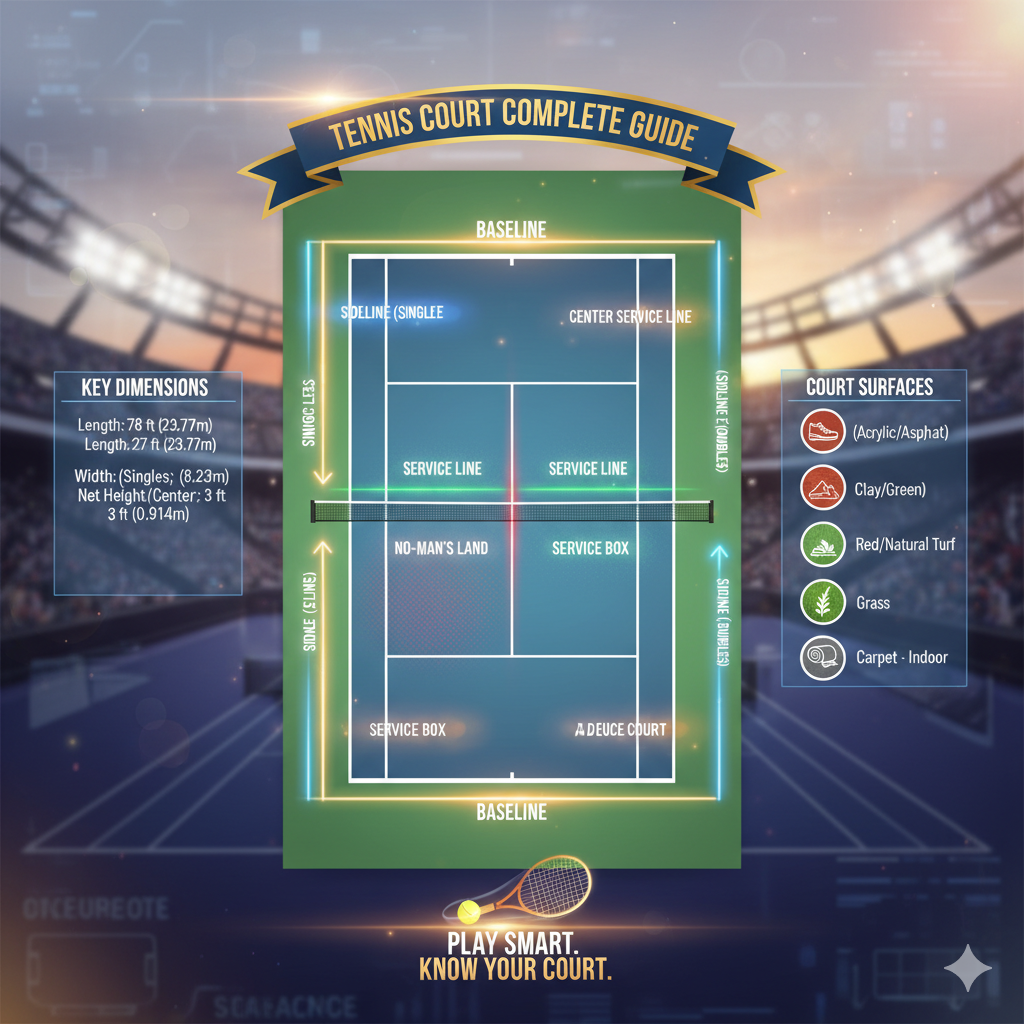Introduction
Mumbai, India’s financial capital, is not only known for business and entertainment but also as a growing hub for sports and fitness. Among various sports, tennis has seen a remarkable rise in popularity, with schools, colleges, residential complexes, and private clubs increasingly investing in professional facilities. The demand for tennis court construction in Mumbai is higher than ever, thanks to a blend of lifestyle demand, fitness awareness, and professional training requirements.
Constructing a tennis court in Mumbai is more than just laying a surface — it requires careful planning, weather-resistant materials, skilled execution, and adherence to International Tennis Federation (ITF) standards. With Mumbai’s humid climate, heavy monsoons, and limited urban space, expert construction becomes even more important.
This guide will walk you through everything you need to know about building a tennis court in Mumbai — including types of courts, ITF dimensions, construction process, costs, maintenance, and challenges.
Why Build a Tennis Court in Mumbai?
-
Rising Popularity of Tennis – More academies, tournaments, and fitness clubs are promoting tennis across the city.
-
Year-Round Play – Synthetic and hard courts allow for consistent play even during monsoon and humid conditions.
-
Fitness & Lifestyle Trend – Tennis offers a complete workout, making it popular among health-conscious Mumbaikars.
-
Professional Training – Aspiring players require high-quality courts for coaching and tournaments.
-
Value Addition for Properties – Housing societies, clubs, and resorts with tennis courts attract higher demand and prestige.
Types of Tennis Courts in Mumbai
-
Hard Courts (Acrylic / Asphalt / Concrete)
-
Most common in schools, academies, and residential complexes.
-
Highly durable and weather-resistant, ideal for Mumbai’s climate.
-
Provides consistent bounce and medium-fast play.
-
Low maintenance compared to clay or grass.
-
-
Clay Courts
-
Preferred by academies for training future athletes.
-
Slower bounce improves stamina and footwork.
-
Requires daily maintenance, making it slightly challenging during Mumbai’s monsoon.
-
-
Synthetic Turf Courts
-
Artificial grass surface with cushioned comfort.
-
Ideal for housing societies, gyms, and recreational facilities.
-
Lower upkeep compared to natural grass courts.
-
-
Natural Grass Courts
-
Rare in Mumbai due to space and high maintenance needs.
-
Not suitable for year-round play in humid and rainy conditions.
-
Standard Tennis Court Dimensions (ITF Guidelines)
To ensure competitive and safe play, tennis courts in Mumbai should follow ITF-approved dimensions:
-
Court Length: 23.77 m (78 ft)
-
Court Width (Singles): 8.23 m (27 ft)
-
Court Width (Doubles): 10.97 m (36 ft)
-
Net Height: 1.07 m (3.5 ft) at posts, 0.91 m (3 ft) at center
-
Clearance Around Court: 6.4 m (21 ft) behind baselines, 3.66 m (12 ft) on sides
-
Indoor Ceiling Height: At least 9–12 m for professional facilities
Along with dimensions, fencing, lighting, and proper line markings are necessary for both recreational and professional matches.
Step-by-Step Tennis Court Construction in Mumbai
-
Site Selection & Planning
-
Choose a level site with space for clearance.
-
Align court north-south to reduce glare.
-
Ensure good drainage to handle heavy rainfall.
-
-
Base Construction
-
Soil excavation and compaction.
-
Multi-layer base with stone aggregates, asphalt, or RCC.
-
1% cross slope for efficient water drainage.
-
-
Surface Installation
-
Acrylic Hard Court – Most common and durable in Mumbai.
-
Clay Surface – For professional training centers.
-
Synthetic Turf – For recreational and society courts.
-
-
Markings & Accessories
-
ITF-approved paint for non-slip line markings.
-
Install nets, posts, and center straps.
-
Fencing for safety and privacy.
-
-
Lighting & Amenities
-
LED floodlights (500+ lux) for evening matches.
-
Seating arrangements for academies and clubs.
-
Optional landscaping and clubhouse facilities.
-
Cost of Tennis Court Construction in Mumbai
The cost depends on materials, site preparation, and facilities added:
-
Concrete Court: ₹10 – ₹14 lakhs
-
Acrylic Hard Court: ₹15 – ₹25 lakhs
-
Clay Court: ₹18 – ₹28 lakhs
-
Synthetic Turf Court: ₹20 – ₹35 lakhs
-
Indoor Multi-Court Complex: ₹30 – ₹50 lakhs
👉 On average, constructing a professional tennis court in Mumbai costs between ₹15 – ₹40 lakhs, including flooring, fencing, and lighting.
Maintenance of Tennis Courts in Mumbai
Mumbai’s climate makes regular maintenance essential:
-
Hard Courts (Acrylic): Wash and sweep regularly, resurface every 5–7 years.
-
Clay Courts: Daily watering and rolling; challenging during monsoon.
-
Synthetic Turf: Regular brushing and occasional infill replacement.
-
General Care: Inspect nets, repaint markings, and fix cracks promptly.
Challenges in Tennis Court Construction in Mumbai
-
Weather & Monsoons – Heavy rains demand excellent drainage systems.
-
Humidity – Increases wear and tear on clay and turf courts.
-
Urban Space Limitation – Finding adequate land with clearance is difficult.
-
High Costs – Professional courts require significant investment.
-
Unskilled Labor – Poor construction can lead to cracks, waterlogging, or uneven bounce.
Conclusion
The demand for tennis court construction in Mumbai is booming as schools, academies, residential complexes, and private clubs increasingly recognize the sport’s value. A professionally built tennis court not only enhances fitness and lifestyle but also supports the city’s growing sports culture.
With the right planning, ITF-standard dimensions, quality materials, and professional contractors, Mumbai can continue developing world-class tennis infrastructure. Whether for recreational play, training academies, or tournaments, a well-constructed court is a long-term investment in health, community engagement, and future athletes.




